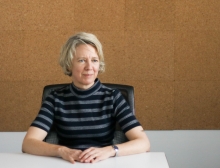INCREASING THE FLOW OF CAPITAL FOR GOOD - INVESTING AND GIVING

When selecting candidates from a large pile of job applications, we don’t just pick someone out at random because they are probably all equally good. And I think you would be concerned if your financial advisor told you to go ahead and invest in any company you generally liked the look of.
But this is what often happens when private client advisors talk about philanthropy. Time is carefully spent talking about financial planning, tax implications and the appropriate mechanism for giving. But the actual decision of which charity to support gets little focus. Time and again I hear that giving to charity is easy and it is up to the client to just pick something they feel connected to.
Is giving as simple as you think? If you think giving is simple, try this exercise. Imagine you have £1 million and you want to do something about homelessness because you feel concerned about this issue. Where do you start? It matters that your money isn’t wasted, but you haven’t got time to independently research into the greatest areas of need or the gaps in support, so do you start by using some of your £1 million to commission that research? Perhaps instead you prefer to go directly to organisations already working in homelessness, but a charity commission search will show you that nearly two thousand charities are supporting the homeless in some way, and that’s just in England and Wales.
So, to narrow your focus, you could select geographically on your local town. But there are still lots of charities offering a huge range of activities: food banks, soup runs, outreach, night shelters, hostels, creative arts, drop-in centres, job clubs, advice services and deposit bond schemes. How will you choose between them? Which ones are most effective? And then you might consider that supporting just one of these services might be nothing more than a sticking plaster. Wouldn’t it be better to tackle the root cause ofhomelessness and shift your focus towards affordable housing provision, campaigning for improved security in the private rental sector or challenging the benefits policies? But will £1 million make any difference at the systemic level? Perhaps instead you could look at emerging alternative models, like social impact bonds, so your money supports a new system?
And then there’s the nagging doubts: you don’t know enough about the sector and it feels wrong to impose a solution when you should be listening to those affected. But who do you listen to and how do you find the time… the research idea is looking sensible again. Working out how best to give your money away – in a way that makes a real difference – can be overwhelming. We could still argue that in this complex situation the best thing is not to think about it too much and just ask your client to pick a cause they care about or support a ‘safe sounding’ household name. But if you do this, you are doing your clients a disservice. The more strategically thoughtful philanthropy is, the more rewarding it is. And the more informed and engaged a philanthropist becomes, the more impact their giving will have.
Conclusion
The research is clear that offering philanthropy advice is good for firms and will increasingly be sought after by clients. Don’t limit yourself to offering services that only discuss tax and structures. If you are not yet equipped to go deeper into giving strategies and content, then an independent philanthropy advisor like myself can train teams or work in partnership. Either way, individuals and families need help to navigate all the choices and implications that philanthropy entails so that their giving is not just a financial transaction, but also a rewarding investment.
This article first appeared in Philanthropy Impact Magazine issue 19. Download the artcile as a PDF here.





